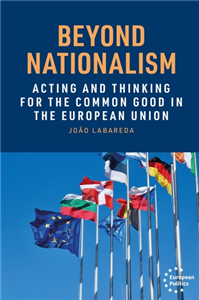Description
More Information
Rights Information
Albania, Algeria, Angola, Argentina, Armenia, Australia, Austria, Bahrain, Belgium, Belize, Benin, Bolivia, Bosnia and Herzegovina, Botswana, Brazil, Bulgaria, Burkina Faso, Burundi, Cameroon, Canada, Cape Verde, Central African Republic, Chad, Chile, China, Colombia, Comoros, Congo [DRC], Congo, Republic of the, Costa Rica, Ivory Coast, Croatia, Czech Republic, Denmark, Djibouti, Ecuador, Egypt, El Salvador, Equatorial Guinea, Eritrea, Estonia, Ethiopia, Faroe Islands, Finland, France, French Guiana, Gabon, Gambia, Georgia, Germany, Ghana, Greece, Guatemala, Guinea, Guinea-Bissau, Guyana, Honduras, Hongkong, Hungary, Iceland, India, Indonesia, Iran, Iraq, Ireland, Israel, Italy, Japan, Jordan, Kazakhstan, Kenya, Kuwait, Latvia, Lebanon, Lesotho, Liberia, Libya, Lithuania, Luxembourg, Macau, China, Macedonia [FYROM], Madagascar, Malawi, Malaysia, Mali, Malta, Mauritania, Mauritius, Mayotte, Mexico, Mongolia, Montenegro, Morocco, Mozambique, Namibia, Netherlands, New Zealand, Nicaragua, Niger, Nigeria, Norway, Oman, Pakistan, Panama, Paraguay, Peru, Philippines, Poland, Portugal, Puerto Rico, Qatar, Reunion, Romania, Russia, Rwanda, Saint Helena, Sao Tome and Principe, Saudi Arabia, Senegal, Serbia, Seychelles, Sierra Leone, Singapore, Slovakia, Slovenia, Somalia, South Africa, South Korea, Spain, Sri Lanka, Sudan, Suriname, Swaziland, Sweden, Switzerland, Syria, Taiwan, Tanzania, Thailand, Timor-Leste, Togo, Tokelau, Tunisia, Turkey, Uganda, Ukraine, United Arab Emirates, United Kingdom, United States, Uruguay, Venezuela, Vietnam, Western Sahara, Yemen, Zambia, Zimbabwe, South Sudan, Cyprus, Palestine, Bangladesh, Cambodia, Liechtenstein, Azerbaijan, Jamaica, Kyrgyzstan, Dominican Republic, Myanmar, Monaco
Endorsements
Beyond nationalism presents a comprehensive theory of the common good of the European Union (EU) and proposes concrete policies and institutional reforms to improve its achievement. It commences with a discussion of the public values jointly endorsed by EU member states, which are seen to provide a basis for identifying a transnational common good. Labareda discusses the distinctive nature of the EU common good, which he associates with three main conditions: maintaining liberal democracy, enabling decent standards of social welfare, and ensuring a high level of environmental protection. Relying on a constructivist understanding of national interests, the author proposes a set of reforms that would allow the EU common good to be more strongly represented in the process of national interest formation in domestic politics. At the same time, he proposes significant changes in the Brussels institutional apparatus aimed at democratising the pursuit of the common good, including the creation of an EU Citizens' Assembly and the election of the presidents of the European Commission and the European Council. The book takes on board the idea that a willingness by EU citizens to recurrently sacrifice their interests for the sake of an EU common good would require stronger bonds of civic friendship among them. It proposes several policies to achieve this goal, including reducing socioeconomic inequalities in the EU, curtailing barriers against freedom of movement, and creating a transnational curriculum on EU citizenship.
Reviews
Beyond nationalism presents a comprehensive theory of the common good of the European Union (EU) and proposes concrete policies and institutional reforms to improve its achievement. It commences with a discussion of the public values jointly endorsed by EU member states, which are seen to provide a basis for identifying a transnational common good. Labareda discusses the distinctive nature of the EU common good, which he associates with three main conditions: maintaining liberal democracy, enabling decent standards of social welfare, and ensuring a high level of environmental protection. Relying on a constructivist understanding of national interests, the author proposes a set of reforms that would allow the EU common good to be more strongly represented in the process of national interest formation in domestic politics. At the same time, he proposes significant changes in the Brussels institutional apparatus aimed at democratising the pursuit of the common good, including the creation of an EU Citizens' Assembly and the election of the presidents of the European Commission and the European Council. The book takes on board the idea that a willingness by EU citizens to recurrently sacrifice their interests for the sake of an EU common good would require stronger bonds of civic friendship among them. It proposes several policies to achieve this goal, including reducing socioeconomic inequalities in the EU, curtailing barriers against freedom of movement, and creating a transnational curriculum on EU citizenship.
Author Biography
João Labareda is a policy officer at the European Commission. Previously, he was the Chair of the Council Working Party on EFTA and a speechwriter to the European Commissioner for Research, Science and Innovation
Manchester University Press
Manchester University Press is a leading UK publisher known for excellent research in the humanities and social sciences.
View all titlesBibliographic Information
- Publisher Manchester University Press
- Publication Date November 2024
- Orginal LanguageEnglish
- ISBN/Identifier 9781526169099 / 1526169096
- Publication Country or regionUnited Kingdom
- FormatPrint PDF
- Pages224
- ReadershipCollege/higher education; Professional and scholarly
- Publish StatusPublished
- Dimensions234 X 156 mm
- Biblio NotesDerived from Proprietary 5675
- SeriesEuropean Politics
- Reference Code14890
Manchester University Press has chosen to review this offer before it proceeds.
You will receive an email update that will bring you back to complete the process.
You can also check the status in the My Offers area

Please wait while the payment is being prepared.
Do not close this window.



